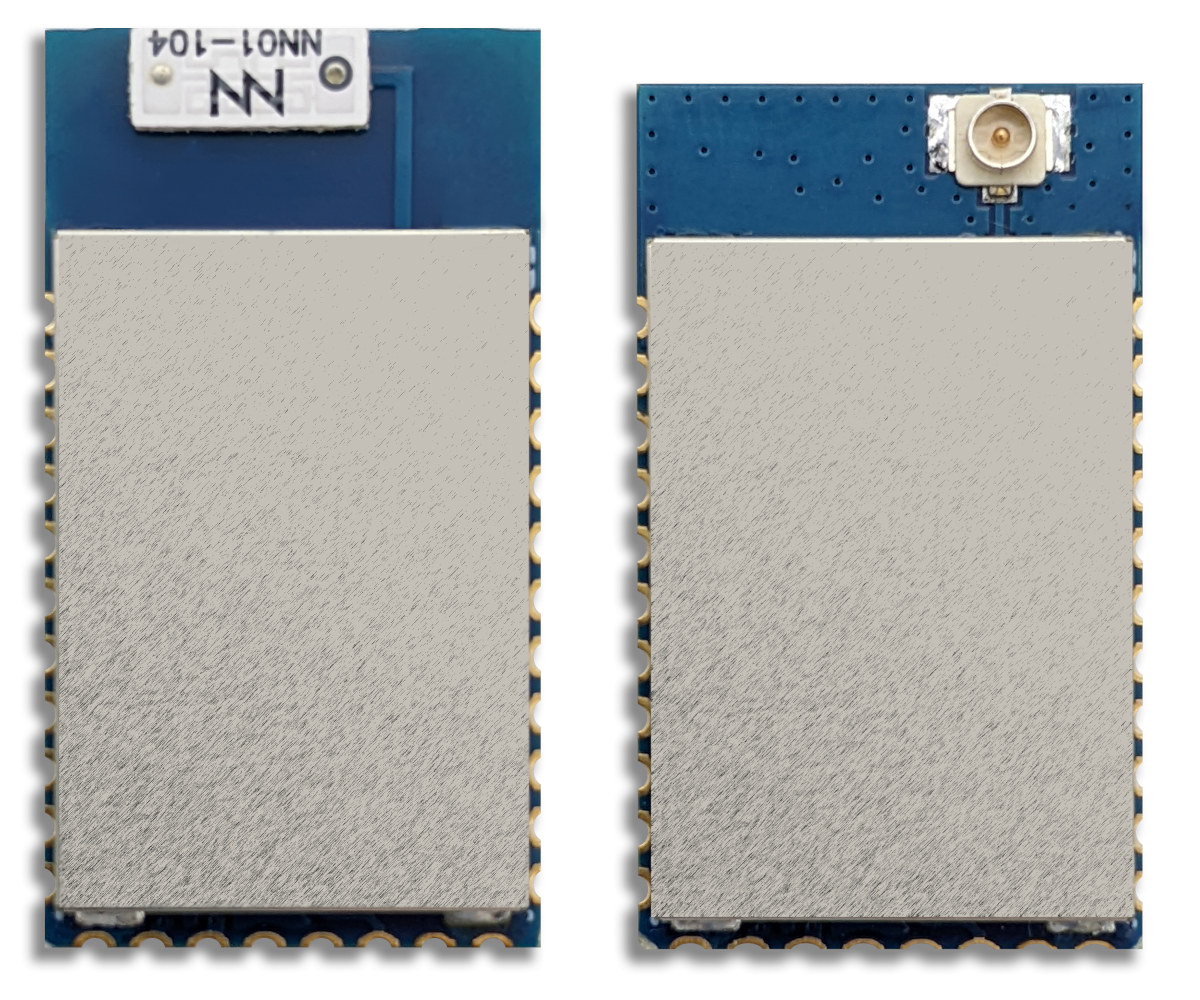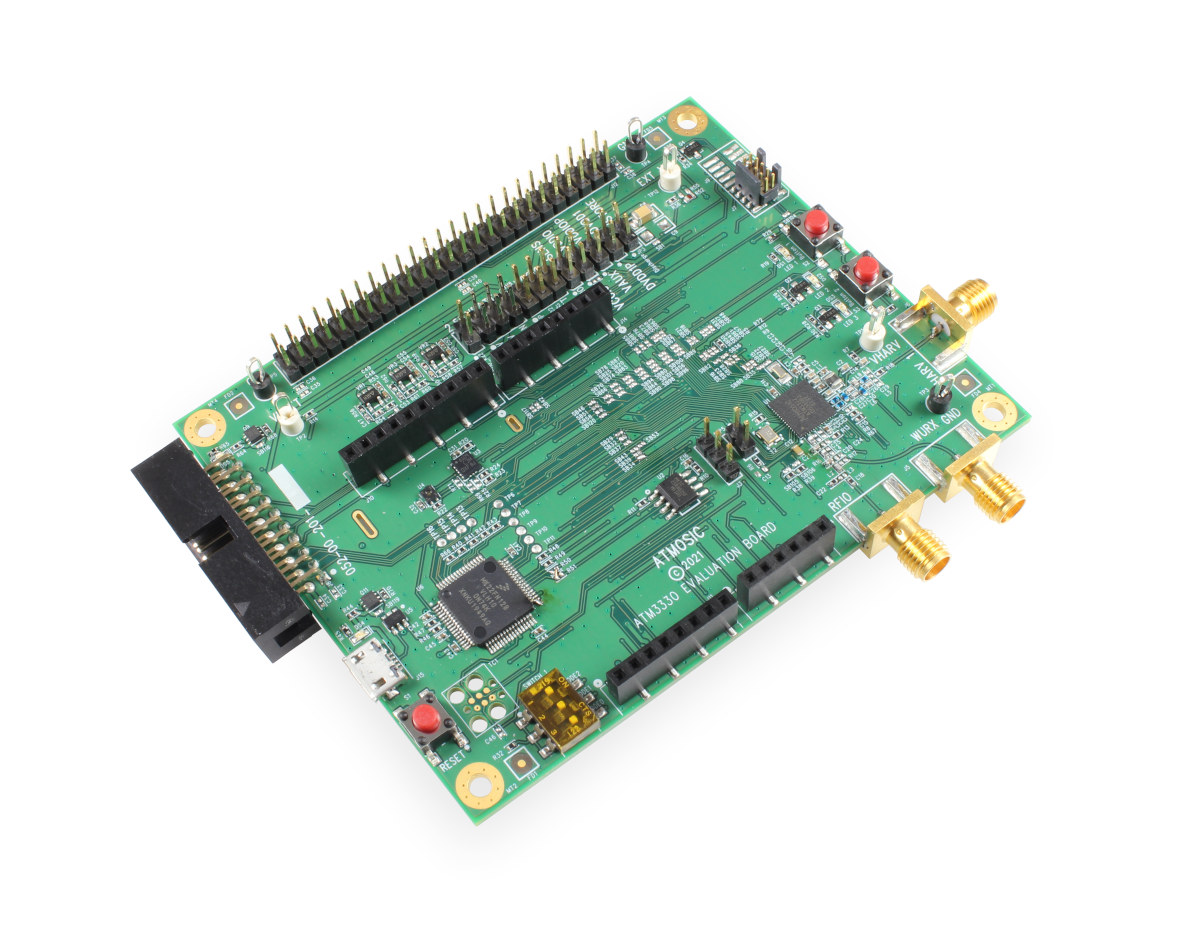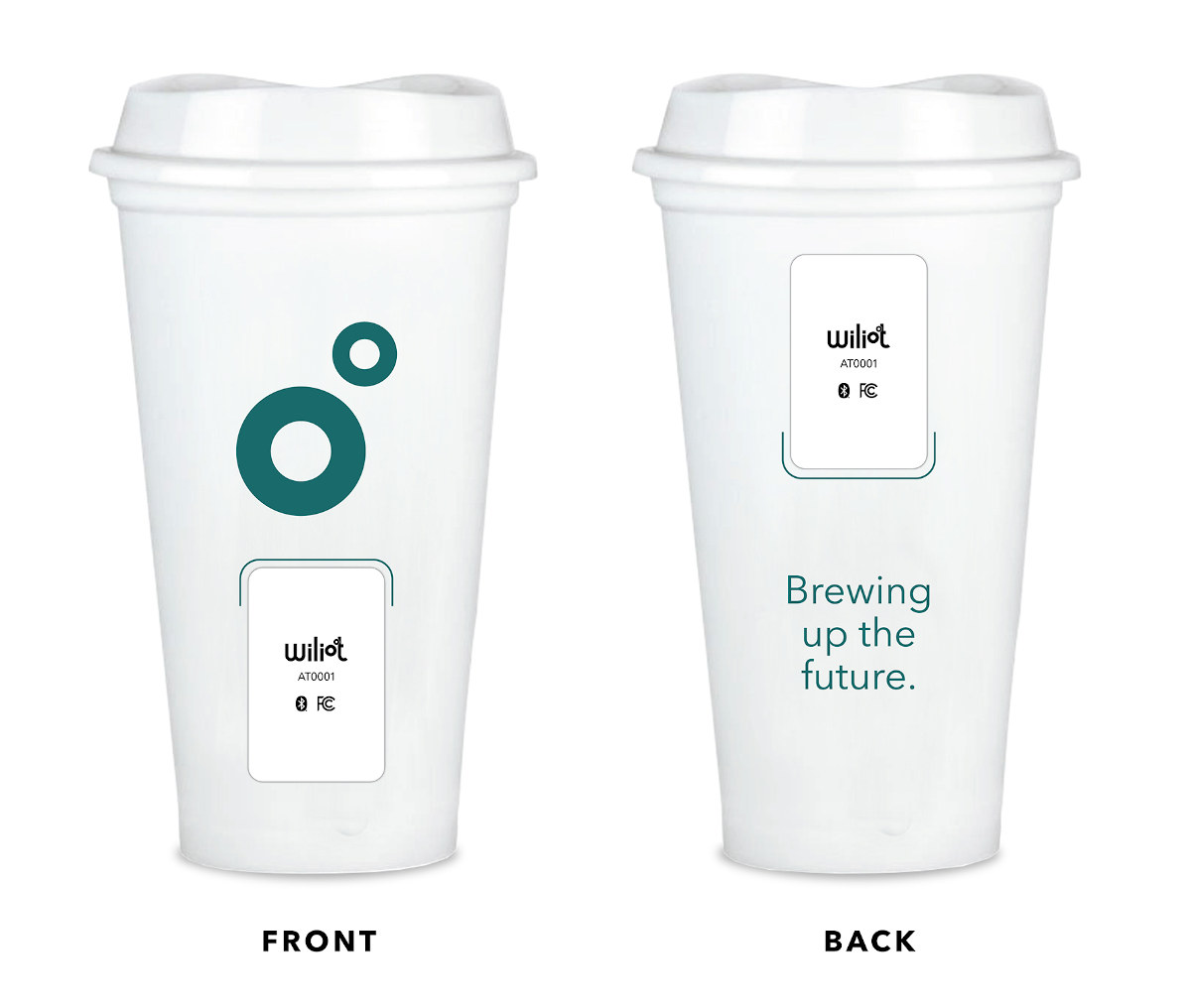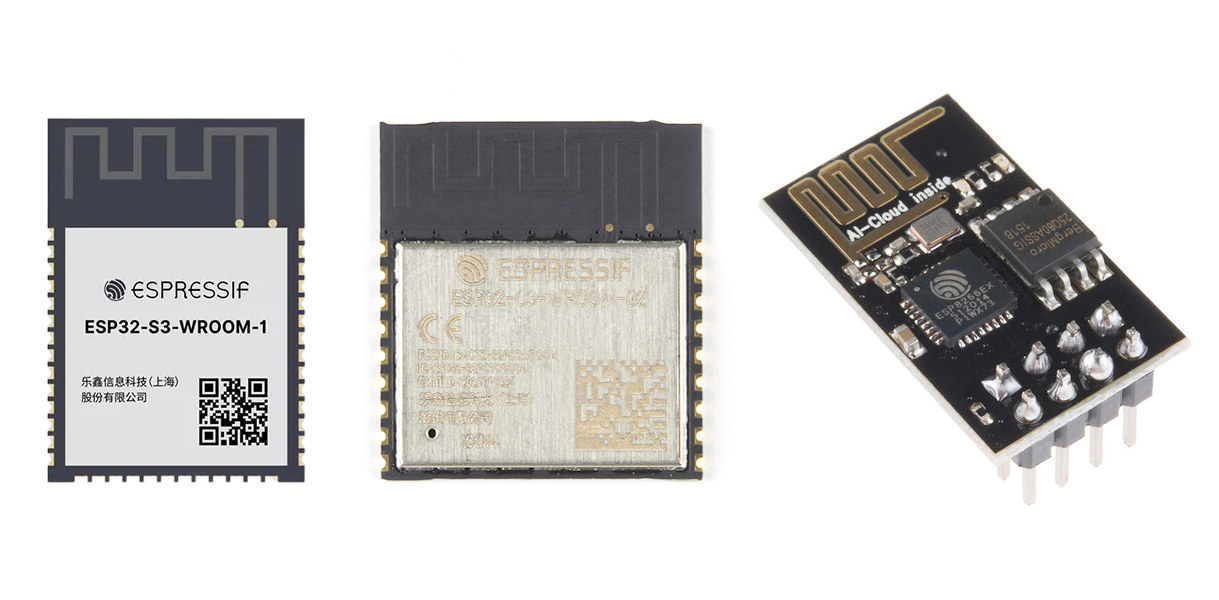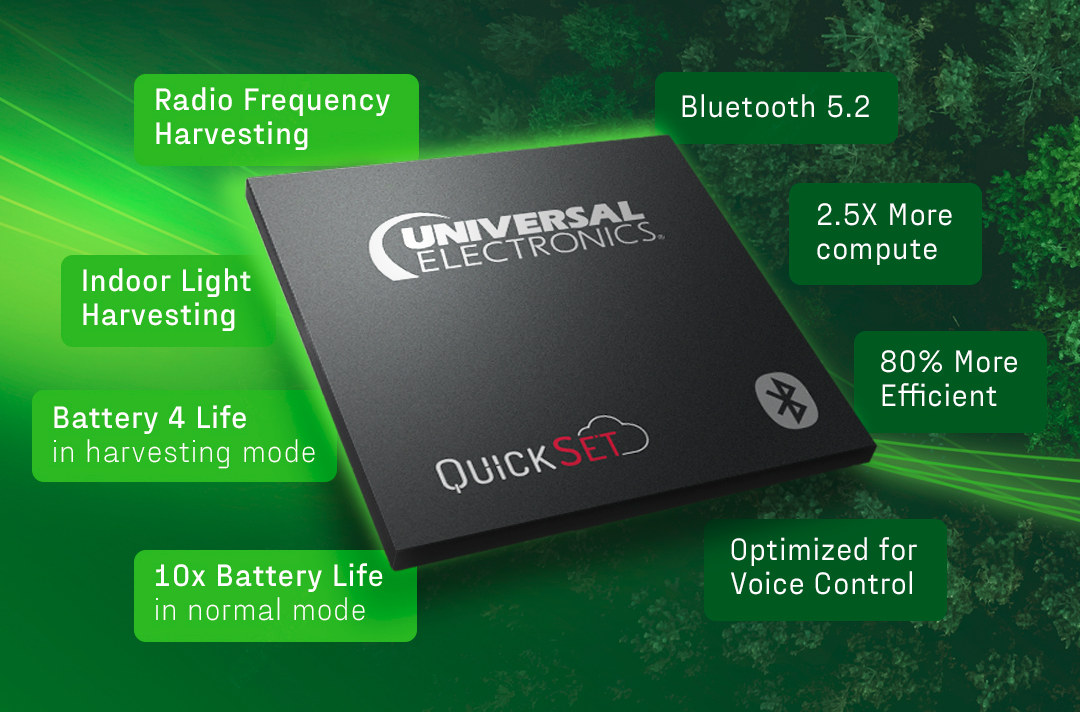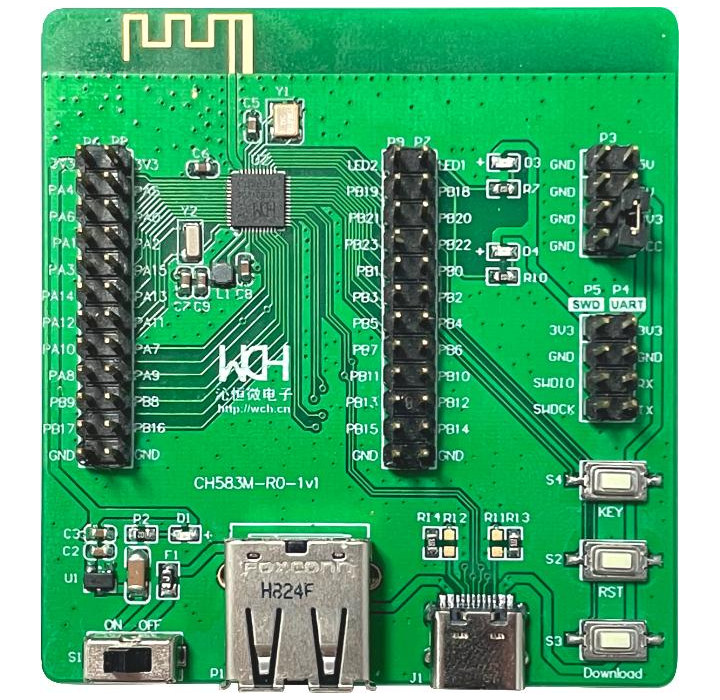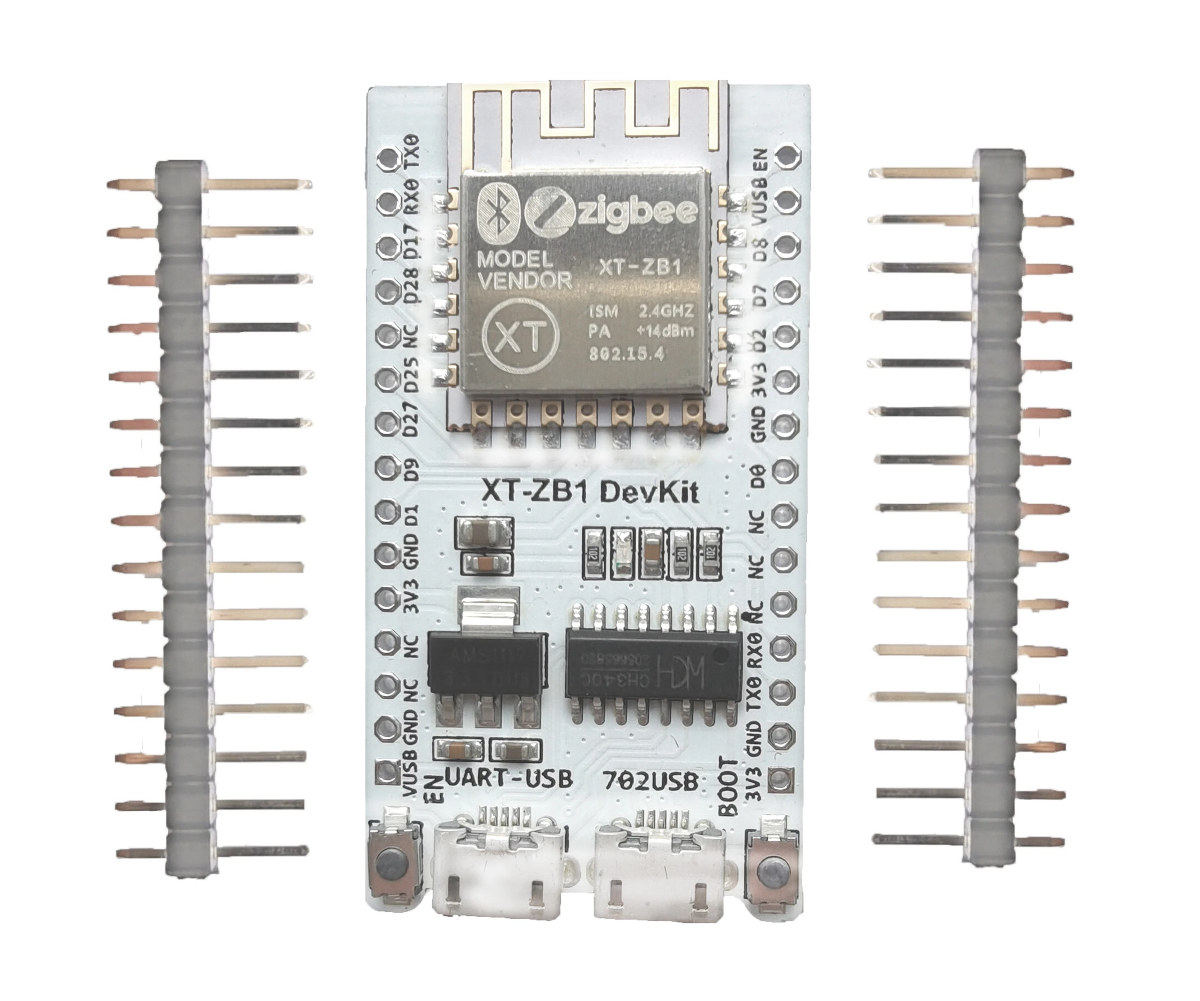Machine Learning is getting everywhere including into 2.4GHz wireless microcontrollers with SIlicon Labds BG24 Bluetooth and MG24 multi-protocol Cortex-M33 microcontrollers that improve AI/ML performance by 4 times using 1/6th of the energy thanks to a built-in AI accelerator. That makes the new microcontrollers suitable for battery-powered edge AI devices with support for Matter (coming soon) as well as PSA Level 3 Secure Vault protection. Silicon Labs expects the chips to be found in various smart home, medical and industrial applications. BG24 and MG24 share the same block diagram and the same specifications apart from the supported wireless protocols: MCU core – Arm Cortex-M33 @ 78.0 MHz with DSP instruction and floating-point unit Memory – Up to 256 kB RAM data memory Storage – Up to 1536 kB flash program memory Wireless CPU – Arm Cortex-M0+ 2.4 GHz Radio Performance -104.5 dBm sensitivity @ 250 kbps O-QPSK DSSS -104.9 dBm sensitivity […]
Bluetooth LE 5.0 module enables batteryless sensors thanks to Renesas RE01B MCU
RELOC RM-BE1 Bluetooth 5.0 module with embedded energy harvesting capabilities for batteryless sensors adds to the list of energy harvesting news we’ve written about since the beginning of the year, with UEI chip for remote controls, a devkit with a smart coffee cup, and Atmosic ATM33 BLE 5.3 chip. The RM-BE1 module is powered by Renesas RE01B Arm Cortex-M0+ Bluetooth microcontroller that leverages Renesas’ SOTB (Silicon on Thin Buried Oxide) process technology enabling ultra-low power. We’ve been told the chip can run at 35uA/Mhz with internal LDOs and <20uA/Mhz with additional external DCDCs, as well as around 600nA in standby mode. RELOC RM-BE1 module key features and specifications: MCU – Renesas RE01B Arm Cortex-M0+ microcontroller @ 64 MHz with 1.5MB flash, 256KB SRAM Connectivity Bluetooth LE 5.0 with Long Range (up to 400 m) and high data throughput (2 Mbps) support RF output power – Up to +4 dBm Receiver […]
Atmosic ATM33 – A Bluetooth LE 5.3 Cortex-M33 MCU with energy harvesting capabilities
Atmosic ATM33 is a Bluetooth LE 5.3 compliant Cortex-M33 microcontroller with optional energy harvesting capabilities that can enable up to 5x longer battery life and even battery-free solutions. The 64 MHz MCU also comes with 64 KB ROM, 128 KB RAM, 512 KB non-volatile memory, hardware security features, and SensorHub hardware block that allows data to be managed while the majority of the SoC, including the MCU core, is in a hibernated state. Atmosic ATM33 specifications: MCU core – Arm Cortex M33F core @ 64 MHz Memory/Storage 64 KB ROM, 128 KB RAM, 512 KB NVM Retention RAM configuration: 16 KB to 128KB in 16 KB step sizes Wireless Connectivity Bluetooth Low-Energy 5.3 compliant 2 Mbps, 1 Mbps 500 kbps, and 125 kbps PHY rates Supports Bluetooth Angle-of-Arrival (AoA) and Angle-of-Departure (AoD) direction finding Tx: 0 to 10dB 0.7mA receiver 16 MHz / Optional 32.768 kHz Crystal Oscillator Atmosic SensorHub […]
Wiliot Starter Kit for retailers features a smart coffee cup tracking temperature, fill level, location, etc…
Wiliot Starter Kit aims to demonstrate the ability of the Wioliot’s self-powered IoT Pixel and cloud services to retailers with a kit including a Coffee cup that’s capable of tracking liquid temperatures, fill level, motion, location changes, humidity, and proximity. The kit was previously only available to larger retailers through a “controlled release model”, but the company has now switched to an “open model” so that any retailers can use the technology to track products and packages. Let’s what’s included inside the start kit, and try to understand how the Wiliot solution works. Wiliot Starter Kit includes the following hardware: 1 x IoT Pixel-ready Coffee Cup 5 x Single-Band IoT Pixels mounted on cardboards 5 x Dual-Band IoT Pixels mounted on cardboards 1 x Single-Band Bridge Device 1 x Dual-Band Bridge Device You’ll also get 6 months of Wiliot Cloud Services, access to the Wiliot community forum & support Portal, […]
A comparison of ESP32-S3, ESP32-C3 and ESP8266 modules
The ESP32-S3 chip is equipped with an Xtensa 32-bit LX7 dual-core processor clocked at up to 240 MHz, supports 2.4 GHz Wi-Fi and Bluetooth 5 LE, and boasts AI instructions, as well as a reliable security encryption engine, specially built for the AIoT market. Modules based on the ESP32-S3 processor bring many benefits to designers with support for Bluetooth Long Range mode, plenty of resources with 512 KB SRAM (TCM), 45 programmable GPIO pins, and rich communication interfaces. They can also handle high-speed Octal SPI flash with higher capacities, as well as off-chip PSRAM. So, what are the differences between the new ESP32-S3 modules, and typical ESP32-C3 and ESP8266 modules? Let’s find out. Jean-Luc Aufranc (CNXSoft)Jean-Luc started CNX Software in 2010 as a part-time endeavor, before quitting his job as a software engineering manager, and starting to write daily news, and reviews full time later in 2011. www.cnx-software.com
“Extreme low power” chip with energy harvesting provides lifetime battery solution for remote controls
Most people probably don’t mind changing batteries in remote controls every so often, but it contributes to e-waste especially if you’re not using rechargeable batteries, and I always find it’s pain as I don’t usually have stock, or don’t feel like waiting for several hours to recharge the batteries. Universal Electronics Inc, or UEI for shorts, claims to have a solution with a family of QuickSet-certified chips using “Extreme Low-Power”, energy-harvesting and “high-performance technology” that would provide lifetime battery life to Bluetooth, voice remote controls. The main goal is “to help transition the world towards a more sustainable future, by reducing primary battery waste throughout the life of the product, which in turn reduces the cumulative CO2 footprint”. We don’t have a lot of information about the chip, but the company provides some of the key benefits of the Bluetooth 5.2 SoC: Arm-based with Trustzone security Up to 2.5 times […]
CH583 RISC-V microcontroller supports Bluetooth 5.3 LE
Following up on the CH572 RISC-V BLE microcontroller with 10KB SRAM, WCH has now introduced the CH583 RISC-V microcontroller with 32KB SRAM, 1 MB flash, and support for the latest Bluetooth 5.3 LE standard. The new microcontroller also offers a wide range of peripherals with two USB host/device interfaces, up to 40 GPIOs, four UART, two SPI, one I2C, up to 14 ADC interfaces, and more. WCH also offers CH581 and CH582 microcontrollers with a different minimum input voltage, less storage (256KB for CH581) and/or peripherals. CH581, CH582, CH583 specifications: MCU core – 32-bit RISC processor WCH RISC-V4A with RV32IMAC instruction set Memory – 32 KB SRAM Storage – 512KB non-volatile storage FlashROM: 448KB user application program memory area CodeFlash 32KB user non-volatile data memory area DataFlash 24KB system boot program memory area BootLoader 8KB system non-volatile configuration information memory area InfoFlash BLE Connectivity Bluetooth Low Energy (BLE) v5.3 Integrated […]
$1.8 XT-ZB1 Zigbee & BLE devkit features BL702 RISC-V module
Bouffalo Labs BL702 is a 32-bit RISC-V microcontroller with a 2.4 GHz radio for Zigbee 3.0 and Bluetooth 5.0 LE connectivity that we first found in the Sipeed RV-Debugger Plus UART & JTAG debug board that did not make use of the radio at all. But a BL702 development kit was brought to my attention, with the XT-ZB1 devkit equipped with a Zigbee & BLE module of the same name, and sold for just $1.80 per unit on Aliexpress. Shipping adds $4.63 where I live, but they also offer packs of 5 or 10 with the same shipping fee, meaning if you buy 10 the total cost should be around $22 including shipping, or around $2.2 per board. Alternatively, the module alone goes for $1. XT-ZB1 devkit specifications: XT-ZB1 wireless module with MCU – BL702C 32-bit RISC-V microcontroller @ 144 MHz with FPU, 132KB RAM, 192KB ROM, 1Kbit eFuse Storage […]


